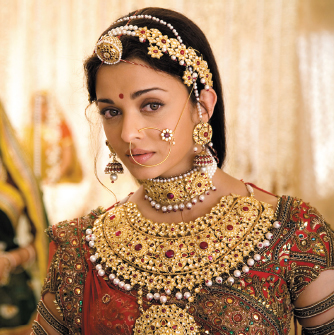Global Village
GLOBAL VILLAGE
Beyond Hollywood: Asian Cinema
Asian nations easily outstrip Hollywood in quantity of films produced. India alone produces about a thousand movies a year. But from India to South Korea, Asian films are increasingly challenging Hollywood in terms of quality, and they have become more influential as Asian directors, actors, and film styles are exported to Hollywood and the world.
India
Part musical, part action, part romance, and part suspense, the epic films of Bollywood typically have fantastic sets, hordes of extras, plenty of wet saris, and symbolic fountain bursts (as a substitute for kissing and sex, which are prohibited from being shown). Indian movie fans pay from 75 cents to $5 to see these films, and they feel short-changed if they are shorter than three hours. With many films produced in less than a week, however, most of the Bollywood fare is cheaply produced and badly acted. But these production aesthetics are changing, as bigger-budget releases target middle and upper classes in India, the twenty-five million Indians living abroad, and Western audiences. Jab Tak Hai Jaan (2012), a romance starring Shahrukh Khan, India’s most famous leading man, had the most successful U.S. box office opening of any Bollywood film. The film was released just weeks after the death of Yash Chopra, its award-winning director.

China
Since the late 1980s, Chinese cinema has developed an international reputation. Leading this generation of directors are Zhang Yimou (House of Flying Daggers, 2004; The Flowers of War, 2011) and Kaige Chen (Farewell My Concubine, 1993; Caught in the Web, 2012), whose work has spanned genres such as historical epics, love stories, contemporary tales of city life, and action fantasy. These directors have also helped to make international stars out of Gong Li (Memoirs of a Geisha, 2005; What Women Want, 2011) and Ziyi Zhang (Memoirs of a Geisha, 2005; Dangerous Liaisons, 2012).
Hong Kong
Hong Kong films were the most talked-about—and the most influential—film genre in cinema throughout the late 1980s and 1990s. The style of highly choreographed action with often breathtaking, balletlike violence became hugely popular around the world, reaching American audiences and in some cases even outselling Hollywood blockbusters. Hong Kong directors like John Woo, Ringo Lam, and Jackie Chan (who also acts in his movies) have directed Hollywood action films; and Hong Kong stars like Jet Li (Lethal Weapon 4, 1998; The Forbidden Kingdom, 2008; The Expendables 2, 2012), Chow Yun-Fat (The Replacement Killers, 1998; Shanghai, 2010), and Malaysia’s Michelle Yeoh (Memoirs of a Geisha, 2005; The Lady, 2011) are landing leading roles in American movies.
Japan
Americans may be most familiar with low-budget monster movies like Godzilla, but the widely heralded films of the late director Akira Kurosawa have had an even greater impact: His Seven Samurai (1954) was remade by Hollywood as The Magnificent Seven (1960), and The Hidden Fortress (1958) was George Lucas’s inspiration for Star Wars. Current forces in Japanese cinema include Hayao Miyazaki (The Wind Rises, 2013; Ponyo, 2009), the country’s top director of anime movies. Japanese thrillers like Ringu (1998), Ringu 2 (1999), and Ju-on: The Grudge (2003) were remade into successful American horror films. Another Hollywood sequel to the Ringu franchise, tentatively titled The Ring 3D, is in development.
South Korea
The end of military regimes in the late 1980s and corporate investment in the film business in the 1990s created a new era in Korean moviemaking. Leading directors include Kim Jee-woon (Doomsday Book, 2012); Lee Chang-dong (nominated for the Palme d’Or award at Cannes for Poetry, 2010); and Chan-wook Park, whose Revenge Trilogy films (Sympathy for Mr. Vengeance, 2002; Old Boy, 2003; and Lady Vengeance, 2005) have won international acclaim, including the Grand Prix at Cannes in 2004 for Old Boy. Korean films are hot properties in Hollywood, as major U.S. studios have bought the rights to a number of hits. Korean directors are working in Hollywood, too. Chan-wook Park’s U.S. directing debut came with Stoker (2013), starring Nicole Kidman and Mia Wasikowska, while Kim Jee-woon directed The Last Stand (2013), starring Arnold Schwarzenegger. 